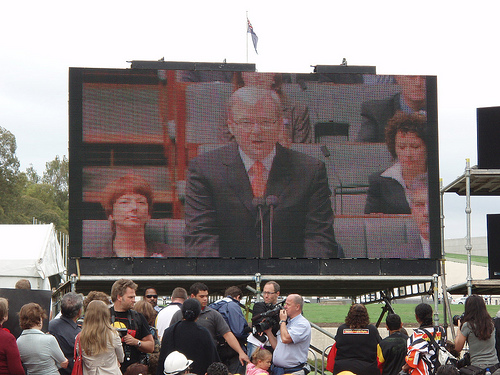Human Research Ethics Online Training
V. Research with Aboriginal and Torres Strait Islander Peoples
Conclusions
There are three key points to take away from this review of the history of research with Indigenous communities and the links with Australian government interventions.
First, the example of the long history of the removal of Indigenous children from their families due to the erroneous theorising of powerful whites explains why Indigenous communities remain deeply sceptical about research, even now that the scientific racism of previous generations has been rejected by researchers. As long as research is used to justify imposing "solutions" onto Indigenous communities without their consent, Aboriginal and Torres Strait Islander Australians will continue to reject the entire Western research paradigm.
Second, what the various examples of the Stolen Generations demonstrate is that research in Australia is rooted in a history of colonial violence. While governments have said that these policies are for the good of Indigenous communities, they have typically been imposed without having any discussion with Indigenous communities about what would actually benefit them, and they have often been damaging to Indigenous families and communities.
And third, that researchers cannot assume that the 'things' - objects, knowledge, values and ideas - that Indigenous research participants reveal and/or expose in the research process are simply 'available' or 'out there' for anyone to own or keep.
Researchers working with Aboriginal or Torres Strait Islander groups are advised to read the complete ethical guidelines to research with these communities:

 Individuals planted "sorry hands" in the soil outside the Redfern Community Centre in inner-city Sydney and a crowd watched the screening of Australian Prime Minister Kevin Rudd's formal apology to the Indigenous people of Australia.Photos by Sidat de Silva (sorry hands) and Keith Fauxtographix, Canberra (Kevin Rudd screening). Copyright Creative Commons, some rights reserved.
Individuals planted "sorry hands" in the soil outside the Redfern Community Centre in inner-city Sydney and a crowd watched the screening of Australian Prime Minister Kevin Rudd's formal apology to the Indigenous people of Australia.Photos by Sidat de Silva (sorry hands) and Keith Fauxtographix, Canberra (Kevin Rudd screening). Copyright Creative Commons, some rights reserved.

